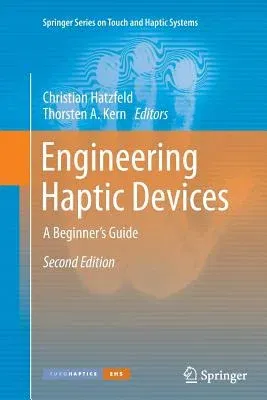Engineering Haptic Devices: A Beginner's Guide (Softcover Reprint of the Original 2nd 2014)Paperback - Softcover Reprint of the Original 2nd 2014, 23 August 2016

Qty
1
Turbo
Ships in 2 - 3 days
In Stock
Free Delivery
Cash on Delivery
15 Days
Free Returns
Secure Checkout
Part of Series
Springer Touch and Haptic Systems
Part of Series
Springer Series on Touch and Haptic Systems
Print Length
573 pages
Language
English
Publisher
Springer
Date Published
23 Aug 2016
ISBN-10
1447168593
ISBN-13
9781447168591
Description
Product Details
Book Edition:
Softcover Reprint of the Original 2nd 2014
Book Format:
Paperback
Country of Origin:
NL
Date Published:
23 August 2016
Dimensions:
23.39 x
15.6 x
3.12 cm
Genre:
Science/Technology Aspects
ISBN-10:
1447168593
ISBN-13:
9781447168591
Language:
English
Location:
London
Pages:
573
Publisher:
Weight:
839.15 gm

